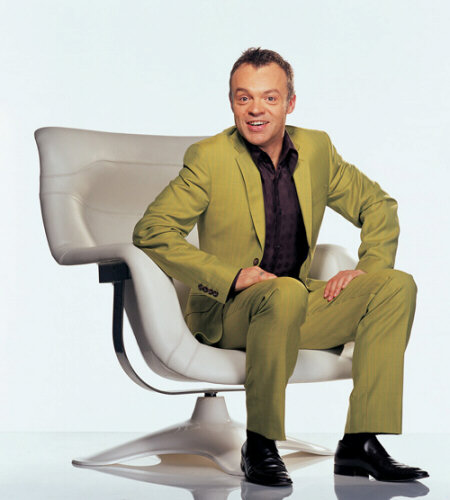I suppose it should be heartening that sexual orientation has now joined race and gender as an untouchable category that one may use to deflect criticism, even as reality diverges sharply from rhetoric when substantive rights (e.g. civil unions) are involved. Surely, though, there is a difference between an attack on queer culture and an indictment of the exploitation of queer culture (among other cultures) by a voracious capitalism that will use any shield to defend its markets, and any gimmick to sell its products.
Queer Eye itself is vapid but quite fun. One wonders, though, whether the “acceptance” of queers which it seems to signal is more properly deemed a conditional acceptance, such as that which Clermont-Tonnerre famously extended to the Jews in post-revolutionary France. Clermont-Tonnerre stated, in the full bloom of liberte, egalite, fraternite, that the French nation “must refuse everything to the Jews as a nation and accord everything to Jews as individuals.” Today, in a society structured through each individual’s isolated ability to spend, homosexuals are accepted, even celebrated, insofar as they are prophets of style, preachers of consumption. Thus the Right can refuse everything to gays as a community, and accord everything to them as consumers. As soon as they cease advocating designer shoes, i.e., as soon as they are no longer useful, the Fab Five can expect no support from the network nor from its advertizsers.
 The second type of exploitation of which gay TV is guilty is the
phenomenon of “Gays on Display.” There are at least two kinds of this
sort of exploitation, both of which stress the difference of “gays” from
“normals.” The first is one to which English television trends, in which
programmes revel in the camp side of queer culture while maintaining deep
homophobia. We Brits especially have accepted this as part of our lowbrow
entertainment for centuries without it ever changing the national attitude
towards gay culture. Graham Norton is the most obvious of the current crop in England but he is only the latest in a line that includes Dale Winston, Larry Grayson, Julian Clary, Kenneth Williams, Frankie Howerd, John Inman. It’s a category like court jester – an accepted deviation. Now, some may say that mere visibility is at least a step in the right direction. If the deviants can be laughed at, at least they are not ignored, and the laughter promotes discussion of the issue and eventually humanizes. But do Americans truly make the connection between the Fab Five, on the one hand, and recognizing same-sex love as co-equal with heterosexual love on the other? And if they do not – if they do not recognize the right-ness of the Fab Five marrying their male partners – is Queer Eye a humanization, or a sideshow?
The second type of exploitation of which gay TV is guilty is the
phenomenon of “Gays on Display.” There are at least two kinds of this
sort of exploitation, both of which stress the difference of “gays” from
“normals.” The first is one to which English television trends, in which
programmes revel in the camp side of queer culture while maintaining deep
homophobia. We Brits especially have accepted this as part of our lowbrow
entertainment for centuries without it ever changing the national attitude
towards gay culture. Graham Norton is the most obvious of the current crop in England but he is only the latest in a line that includes Dale Winston, Larry Grayson, Julian Clary, Kenneth Williams, Frankie Howerd, John Inman. It’s a category like court jester – an accepted deviation. Now, some may say that mere visibility is at least a step in the right direction. If the deviants can be laughed at, at least they are not ignored, and the laughter promotes discussion of the issue and eventually humanizes. But do Americans truly make the connection between the Fab Five, on the one hand, and recognizing same-sex love as co-equal with heterosexual love on the other? And if they do not – if they do not recognize the right-ness of the Fab Five marrying their male partners – is Queer Eye a humanization, or a sideshow?



Straight Eye for the Consumer Guy
Dan Friedman
I'll Say Goodbye and Let you Go
Abigail Pickus
Three Jewish Books on Sadness
Jay Michaelson
Sufganiyot
Rachel Barenblat
The Other Jews: Secularism, Kabbalah and Radical Poetics
Hila Ratzabi
A Jewish Masterpiece
David Zellnik
Archive
Our 580 Back Pages
Zeek in Print
Fall/Winter 2004 issue now on sale
About Zeek
Mailing List
Contact Us
Subscribe
Tech Support
Links
From previous issues:
Primal Scream Judaism
Temima Fruchter
Becoming Jewish-ish
Jeff Leavell
Elephant Memory
Jay Michaelson